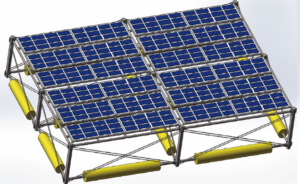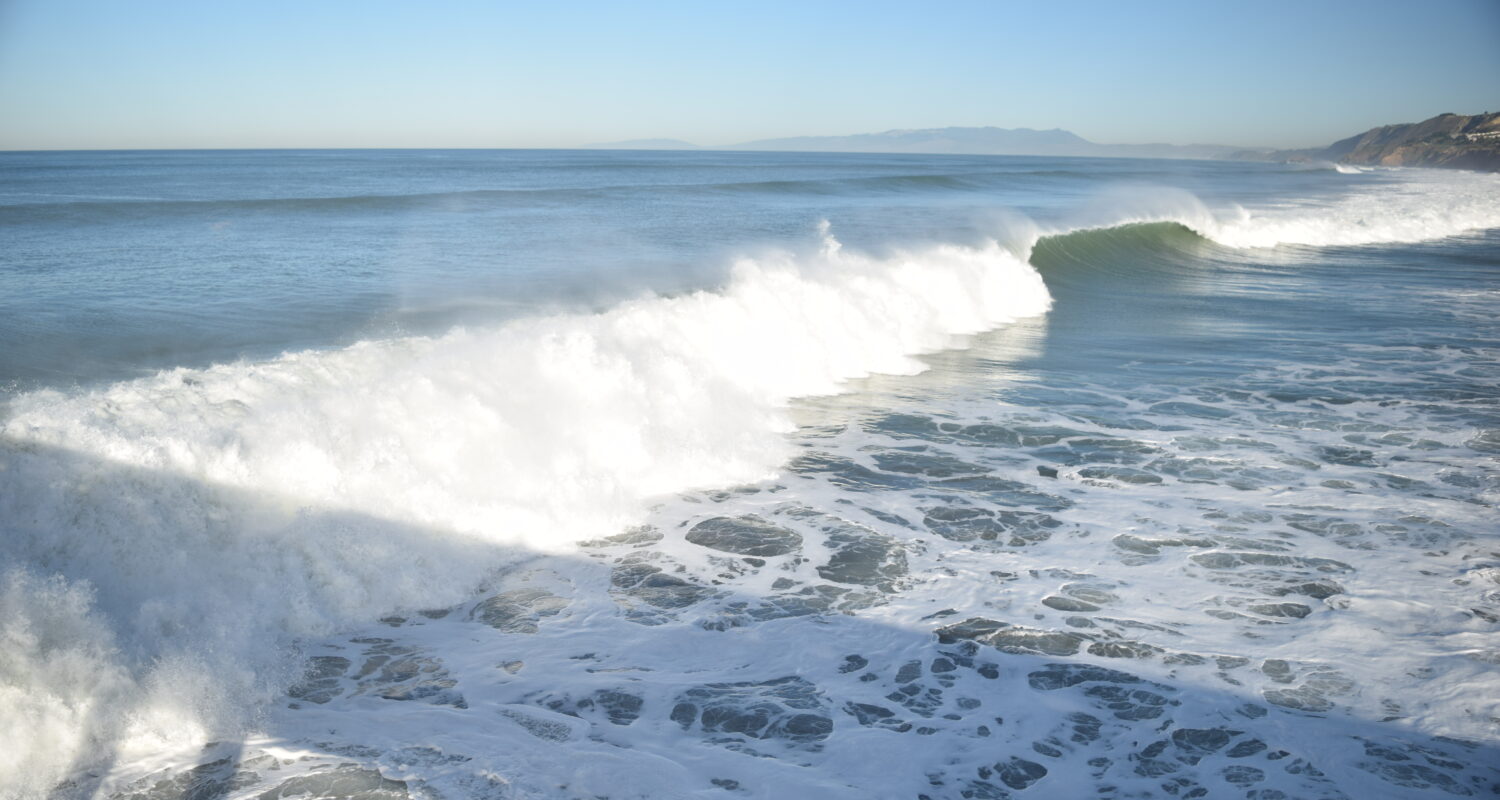Zou, T., Niu, X., Ji, X., Chen, X., & Tao, L. (2023). The projection of climate change impact on the fatigue damage of offshore floating photovoltaic structures. Frontiers in Marine Science, 10, 1065517. https://doi.org/10.3389/fmars.2023.1065517
Floating Factories
The use of photovoltaic cells, or solar panels, has become a popular and viable source of energy for homes and businesses. About 3% of energy created in the US is from solar panels (US Energy Information Administration), and that number could grow with the use of floating solar! Floating photovoltaic cells (FPV), or floating solar panels, are a recent advance in solar energy technology that are being used in aquatic environments, such as in ponds and reservoirs, to capitalize on this source of open space that receives extensive sunlight. However, use of floating solar in the coastal and open ocean is not yet commercially viable on a large scale. The ocean is more susceptible to strong wind, waves, and currents, and receives more extremes in temperature, solar radiation, salinity, and humidity than inland waterbodies. Because of these physical extremes, it is more costly and logistically complicated to deploy floating solar panels in the coastal and open ocean. In addition, it is difficult to transfer the energy created by floating solar panels from sea to shore. New advances in FPV technology must address these issues if we want floating solar to be an important part of our transition to renewable energy.

Figure 1: Schematic of a floating photovoltaic cell (FPV), from Zou, et al., 2023
Riding the Waves
In order for floating solar panels to be deployed on a large scale at sea, they need to be strong enough to handle the rough conditions offshore, including wind and waves. Over time, waves weaken and damage the structure of objects at sea- this is referred to as fatigue damage. Structural fatigue is calculated using ocean wind and wave data, which oceanographers refer to as sea state; this information is then used to inform engineers and designers on how to build offshore structures. Recently, modeling efforts to predict sea state have been used to design offshore solar panels. However, many of these models do not consider how the ocean will respond to climate change, and subsequently, how floating solar panels should be built in the future.

Figure 2: Floating solar panels on a reservoir, from Wikimedia, Wzhkevin, CC BY-SA 4.0
Designing Floating Solar for the Future
Recently, researchers studied how sea state may be altered by climate change and how this will affect the future of floating solar farms. The scientists chose the North Sea as a case study area, as some floating solar farms have already been installed in this area. Sea state is mostly dependent on wind, as most surface waves in the ocean are generated by wind. They simulated the future sea state in the North Sea using a wave model coupled with a global climate model, so the projected sea state would take into account climate change. They used a high greenhouse gas emission scenario and predicted the future sea state in the North Sea for the time periods of 2011-2020, 2051-2060, and 2091-2100. Then, they used the future projections of wind and waves to determine the fatigue damage on floating solar panels.
The researchers discovered that as human emit more greenhouse gases, wind speeds and wave heigh will decrease in the North Sea, according to model projections. This means that floating solar panels deployed in the North Sea will be less susceptible to wind and wave stress, and will therefore have less fatigue damage over time. They estimated that floating solar panels have an average lifespan of about 36 years in current conditions in the North Sea, but they will last for 49 years in the future climate scenario. More research is needed to see if this holds true for other coastal and open ocean areas, as future sea state is dependent on many factors, and not all coastal areas will experience decreased wind and waves with climate change. Though, this is great news for renewable energy technology, as floating solar may get cheaper to make and will last longer in calmer seas.
Featured image: ekaterina vladinova, CC0, via Wikimedia Commons

I am an MS student in Chemical Oceanography at the University of Rhode Island Graduate School of Oceanography. My research focuses on biogeochemical fluxes of nutrients both in the water column and in sediment. I am interested in how nutrient fluxes change in response to low oxygen conditions. Prior to graduate school, I received a BS in Environmental Science and a BA in Biology from the University of Vermont. In my free time, I like to ride my bike and drink good coffee.

